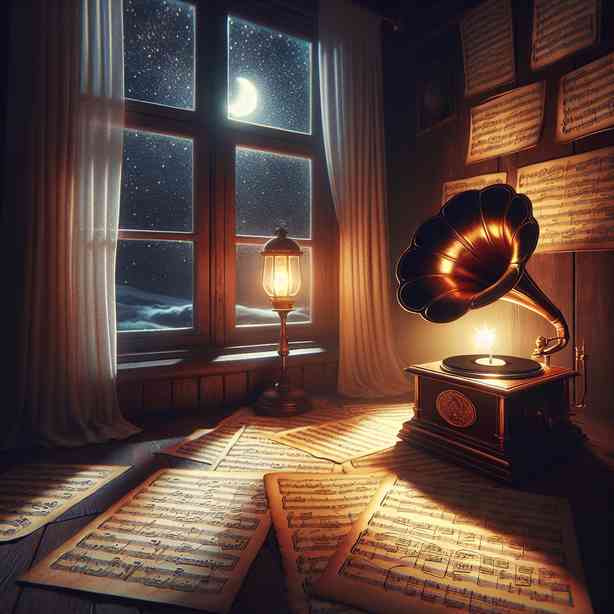
The day you fell in love with classical music is often a special moment, a culmination of experiences that resonate deeply within us, awakening emotions and a sense of connection to something timeless. Classical music, with its rich history and vast variety, offers a unique form of artistic expression that can captivate and inspire listeners in profound ways.
For many, the initiation into the world of classical music may occur during childhood, often through exposure to film scores or music played in educational settings. You might have heard the iconic melodies of Beethoven or the delicate strains of Mozart while watching a beloved animated film, igniting a curiosity that would later develop into a genuine affection for the genre. It is remarkable how these early encounters pave the way for a deeper appreciation of the complexities and nuances found within classical compositions.
As you grow older, your understanding of classical music may deepen through various avenues, such as concerts, operas, or even solo listening sessions at home. Attending a live performance can be a transformative experience. The grandeur of the orchestra, the intricacies of the conductor’s movements, and the palpable energy of the audience combine to create a magical atmosphere. You might find yourself swept away by the emotional intensity of a symphony, feeling as if the music is speaking directly to your soul. It’s in these moments that you may realize the profound beauty that classical music embodies.
Furthermore, the beauty of classical music lies not only in its melodies but also in the stories and emotions each piece conveys. Composers like Tchaikovsky, Chopin, and Brahms infused their music with personal struggles and triumphs, allowing listeners to feel their joys and sorrows. Understanding the context in which these pieces were created can enhance your appreciation, making the listening experience even richer. It offers a glimpse into the composer’s mind and the world they inhabited, creating a connection beyond time and space.
Engaging with classical music often encourages exploration. You may find yourself delving into the lives of composers, eager to uncover the inspirations behind their masterpieces. Reading biographies or listening to discussions about their works can provide insights into their creative processes and motivations. This educational aspect can enhance your relationship with the music, transforming it into a lifeline to different cultures, eras, and philosophies.
As technology advances, the accessibility of classical music has increased tremendously. Streaming services and online platforms allow you to explore vast libraries of recordings, making it easier than ever to discover new favorites. You may find joy in curating your playlists, incorporating various styles from baroque to modern compositions. This journey of discovery can be exhilarating, as there’s always something new and beautiful waiting to be uncovered.
The emotional resonance of classical music can be particularly significant during pivotal moments in life. Whether it’s celebrating personal achievements, processing grief, or finding solace in solitude, the right piece of music has the power to transform your emotional landscape. Perhaps there was a certain sonata that played during a meaningful occasion, or a symphony that accompanied a moment of introspection. These associations can create lasting bonds between the music and your experiences, amplifying the significance of your relationship with classical music.
Moreover, learning to play an instrument can also deepen your connection with classical music. The discipline of practice, the thrill of mastering new pieces, and the joy of performance can enhance your appreciation for the complexities of compositions. The process of interpreting a piece brings the music to life in a personal way, fostering a greater understanding of the intricacies involved. You may even find that playing classical music helps you express emotions that words sometimes cannot.
The social aspect of enjoying classical music should not be overlooked either. Sharing experiences with friends or family, whether through attending concerts, discussing compositions, or even participating in informal listening parties, can foster connections and create shared memories. Engaging in these dialogues allows for varied perspectives, enriching your understanding and appreciation of classical music as a whole.
As you reflect on your journey with classical music, you may recognize that it has become a vital part of your life. It serves not just as entertainment but as a source of comfort, inspiration, and expression. The day you fell in love with classical music didn’t merely introduce a genre to your life; it opened up a world of emotional and intellectual exploration. This enriches your life in ways that extend beyond music, influencing your perceptions and interactions with the world around you.
Ultimately, the love for classical music is an ever-evolving journey, one that invites you to continuously discover and rediscover. Each time you listen to a composition, the music can speak to you in new ways, uncovering layers of meaning and emotion that you may not have perceived before. It encourages reflection, inspires creativity, and fosters a sense of community. This timeless genre has a way of connecting us to ourselves and to each other, ensuring that your relationship with classical music is never truly static but instead a dynamic part of your personal narrative.
In conclusion, the day you fell in love with classical music marks the beginning of a lifelong journey filled with exploration and discovery. From the initial spark of curiosity ignited in childhood to the profound connections fostered through live performances, personal experiences, and continued learning, classical music holds a unique and special place in the hearts of its listeners. It encourages not only appreciation for its beauty but also for the depth of human emotion and experience it conveys. As you continue along this journey, may you find joy and inspiration in every note and composition, celebrating the extraordinary power of classical music to enrich your life.


